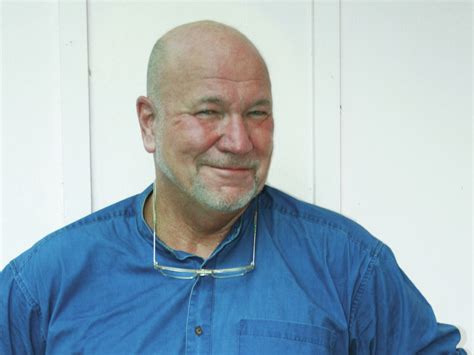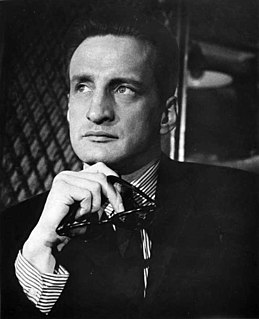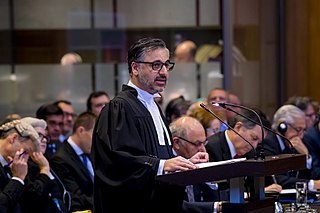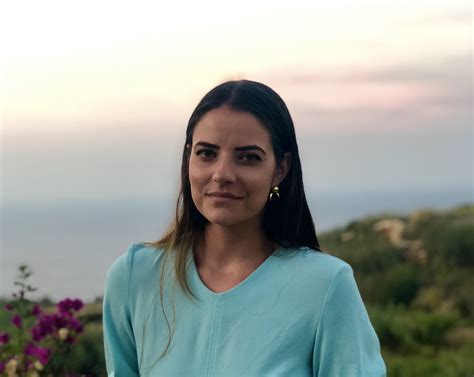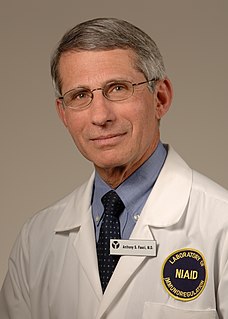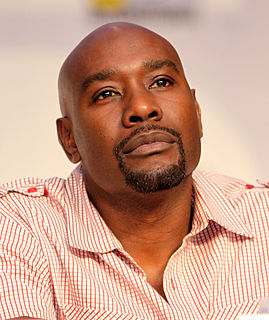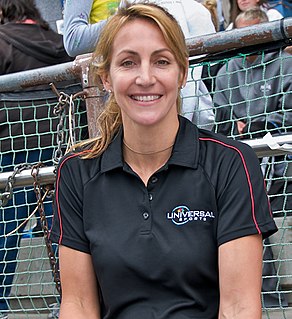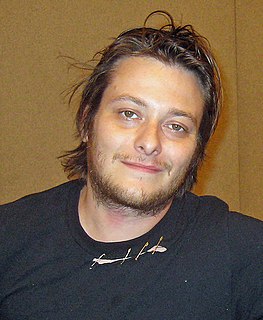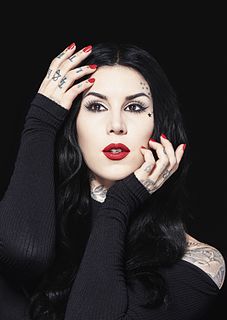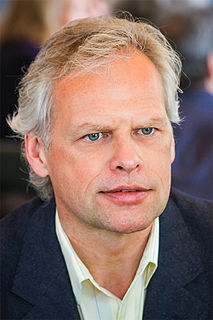Top 333 Therapeutic Quotes & Sayings - Page 6
Explore popular Therapeutic quotes.
Last updated on December 18, 2024.
A journal is more than a memory goad. It's therapeutic. The simple act of opening a notebook to put words down stills the crosscurrents of worry, drawing to focus the essential though patterms that best defines us, intersecting those thoughts with the condition of our life at that exact moment. A journal is one of the few anchors the human condition allows us.
I always wrote. I wrote from when I was 12. That was therapeutic for me in those days. I wrote things to get them out of feeling them, and onto paper. So writing in a way saved me, kept me company. I did the traditional thing with falling in love with words, reading books and underlining lines I liked and words I didn't know.
The Four Noble Truths are pragmatic rather than dogmatic. They suggest a course of action to be followed rather than a set of dogmas to be believed. The four truths are prescriptions for behavior rather than descriptions of reality. The Buddha compares himself to a doctor who offers a course of therapeutic treatment to heal one’s ills. To embark on such a therapy is not designed to bring one any closer to ‘the Truth’ but to enable one’s life to flourish here and now, hopefully leaving a legacy that will continue to have beneficial repercussions after one’s death. (154)
It's a wonderful thing to be able to create your own world whenever you want to. Writing is very pleasurable, very seductive, and very therapeutic. Time passes very fast when I'm writing-really fast. I'm puzzling over something, and time just flies by. It's an exhilarating feeling. How bad can it be? It's sitting alone with fictional characters. You're escaping from the world in your own way and that's fine. Why not?
I became an actor to escape my own personality. Acting is the most therapeutic thing in the world. You see, through acting you come full circle in your personality and, oh, what a grand time you can have along the way being wonderful people through your characters...I think all the courage that I may lack personally I have as an actor.
I like dreams. I think there's a lot of information in them. I spent a lot of time on Jungian analysis and dreams are an elemental part of that process. Carl Jung believed very much in the power archetypes in dreams, what dream imagery means, and how you can tie it into deeper self examination. It's a big part of the therapeutic process.
I've always loved animals. I've never lived without them. As long as I can remember, I was bringing home strays. When I was five, I brought home a stray kitten I named Tiger. This was my first rescued animal. It wasn't until I became an actor, and then injured my spine, that I discovered that these animals were actually very therapeutic and helped me to cope with my chronic pain.
Therapeutic fasting is not a mystical or magical cure. It works because the body has within it the capacity to heal when the obstacles to healing are removed. Health is the normal state. Most chronic disease is the inevitable consequence of living a life-style that places disease-causing stressors on the human organism. Fasting gives the body an interlude without those stressors so that it can speedily repair or accomplish healing that could not otherwise occur in the feeding state.
Criminal trials are fundamentally about individual accountability whereas truth commissions are less about the guilt of the perpetrator and more about the suffering of the victim. A criminal trial is only incidentally a therapeutic or cathartic process for victims. But truth commissions, as we saw in South Africa, have the advantage of giving tens of thousands of people the opportunity to tell their stories, and not only does that contribute to healing but it also contributes to reconciliation, especially when perpetrators also come and express contrition.
To me, acting is very therapeutic. I get out a lot of anger and frustration. It's maybe hard to believe, but as a kid I really had a lot of self-doubts. My father was very ill - he was an alcoholic - so there were a lot of things that built up for me. And because I was going to a Catholic school in a small German town, a lot of it was suppressed. I was angry and didn't know how to get it out.
Even in New York City, we've seen some major improvements from the way the system was 20 years ago. There's still a lot to do - we know that training workers and parents, reducing caseload size, developing therapeutic foster care, strengthening kinship care, and putting more emphasis into preventive care are all solutions. Unfortunately, if a child is in a situation where removal from the home becomes neccessary, there's already been trauma. Putting a traumatized child into a "system," not a home, with strangers is creating a perfect storm for further trauma.
What has happened over the years is that scientists have now developed AIDS therapeutic capabilities, as well as prevention, and we've linked prevention and treatment in a way that if you fast-forward 30 years form '88 to now, we can say without hyperbole that we have the tools, if implemented the way they could be implemented, to theoretically, essentially end the epidemic as we know it now.
It is certainly true that cooking is therapeutic, creative and all those other faintly creepy self-helpish words. I would love to tell you that learning to cook was part of my journey toward actualization. I would love to tell Oprah this. I would love to tell Oprah this while weeping. But I learned to cook for a much simpler reason: in the abject hope that people would spend time with me if I put good things in their mouth. It is, in other words (like practically everything else I do), a function of my desperation for emotional connection and acclaim.
Now the truth is, writing is a great way to deal with a lot of difficult emotional issues. It can be very therapeutic, but that's best done in your journal, or on your blog if you're an exhibitionist. Trying to put a bunch of *specific* stuff from your personal life into your story usually just isn't appropriate unless you're writing a memoir or a personal essay or something of the sort.
For me it's really tough because you have to go to that place where you really, really don't want to go to or revisit. After the first movie, when I was crying at the altar, whenever I would think about it, I would get chills for months after the first "Best Man" because I had to go to that place. And then, here we are with this one, and we are going to that place again. It's just extremely emotional to just have to keep revisiting it, but it can also be therapeutic.
Sometimes when I can't communicate that I'm frustrated, I'll just grab my guitar and I can play out that emotion and be able to cope with whatever is going on. So even being able to, like I said, share this gift with so many other people, it's definitely very therapeutic. It helps me just to focus and to be able to kind of get out those emotions that I'm having without reacting in such a way that's not acceptable in society.
Confronting the intolerable should be challenging and upsetting. Who could read the testimonies of Primo Levi and not feel intellectually and emotionally exhausted? Or Martin Luther King Jr.'s words, not to mention those of Malcolm X? It is the conditions that produce violence that should upset us ethically and prompt us to act responsibly, rather than to capitulate to a privatized emotional response that substitutes a therapeutic language for a political and worldly one.
We had this thing at Stanford called the 'Campus Loop,' and then we had another run called 'The Dish,' and you'd run up to this giant satellite dish, which was probably extremely unhealthy. I would do those two runs, and I just found it so therapeutic. My girlfriends and I would have these great conversations about guys and school and life.
Many years ago, in the late '70s, I toured colleges along the East Coast and I presented a kind of show where I got a lot of books and poetry and pieces of [William] Shakespeare and other writers that I admire, read it to the class and then afterward we would talk and I would answer questions. It was really a way of expressing and finding out about where I was at that particular time, so it was very therapeutic for me.
As a youngster when I started writing and stuff, I did actually write more from other people's perspectives. When I hit 18 and something happened to me that hurt me, I discovered that writing the truth is really therapeutic and amazing. Every single one of my songs is about something very personal to me and I could tell anyone what it's about, each song. Like a diary, basically.
I am no saviour. I’m absolutely the last person on the planet who can practically help. I don’t know how to make the different types of therapeutic feeding milk. I’m no chemist. I’m no doctor. I’m no engineer. I can’t manufacture polio vaccines or organise their transportation to the health centres in Saramoussayah or Bissikirima. I can’t build schools, or design drainage systems. I can’t provide the women and children of Mandiana with water.All I can do now is help make people aware of what is happening, of what they are doing. That is all that I can do. For now.
At first the analysing physician could do no more than discover the unconscious material that was concealed from the patient, put it together, and, at the right moment, communicate it to him. Psychoanalysis was then first and foremost an art of interpreting. Since this did not solve the therapeutic problem, a further aim quickly came in view: to oblige the patient to confirm the analyst's construction from his own memory.
Mediocrity is no answer to violence. In fact, it probably invites violence. At least the mediocre and the violent appear together as in the old Western movies - the ruffian outlaw band shooting up main street and the little white church with the little white schoolteacher wringing her hands. To cool violence you need rhythm, humor, tempering; you need dance and rhetoric. Not therapeutic understanding.
The idea of having dinner together every day with your family removes the pressure from trying to explain everything. You tell us the good parts about your day, but you also tell us the bad parts about your day. And at the end of that, because you're in a ritual, you remove the pressure of admitting you had a failure that day. And it also takes the wind out of having a great day. I mean, it makes you a little bit more normal all the time. That moment of therapeutic sharing is something that happens in food, that doesn't necessarily happen when you're watching TV.
Writing helps us heal in certain way, but it doesn't make the experience of thinking about writing that occasion any less painful. When you revisit trauma, you don't know what's going to be triggering for you because you don't know how it's connected in your mind. So in the same way when we write something, it doesn't completely resolve the experience for us. It can feel therapeutic, but that's not the reason why I do it. I do it to ask a question, or just to find meaning.
Revenge is good. I think revenge is healthy too, and if you can use music in that way, a sort of therapeutic way for yourself, it can't do any harm. So if King (For A Day... Fool For A Lifetime) is angry in any way, it's angry in a random, chaotic, healthy way. Like the guy who goes into a building, shoots a bunch of holes in the wall and then leaves. He didn't kill anybody.
Where these reduced (operational - E.W.) concepts govern the analysis of the human reality, individual or social, mental or material, they arrive at a false concreteness - a concreteness isolated from the conditions which constitute its reality. In this context, the operational treatment of the concept assumes a political function. The individual and his behavior are analyzed in a therapeutic sense - adjustment to his society. Thought and expression, theory and practice are to be brought in line with the facts of his existence without leaving room for the conceptual critique of these facts.
Getting photographs is not the most important thing. For me it's the act of photographing. It's enlightening, therapeutic and satisfying, because the very process forces me to connect with the world. When you make four-hour exposures in the middle of the night, you inevitably slow down and begin to observe and appreciate more what's going on around you. In our fast-paced, modern world, it's a luxury to be able to watch the stars move across the sky.
When you are free of your self in your heart, your labouring within your self is therapeutic to your self. It is a constant blend into your self of what your own Being is. The movement of love, enjoying being at work in the self. The movement of love, enjoying making a change in your self. The enjoyment of application.
Consider the oddity of those drug commercials on television. Fifteen seconds of the purported therapeutic effort, followed by about 45 seconds of a rapidly muttered list of horrific possible side effects. When the ad is over, I can't remember a thing about what the pill is supposed to do, except perhaps cause nausea, liver damage, projectile vomiting, a nasty rash, a four-hour erection, and sudden death. Sudden death is my favorite because there is something comical about it being a side effect. What exactly is the main effect in that case? Relief from abdominal bloating?
